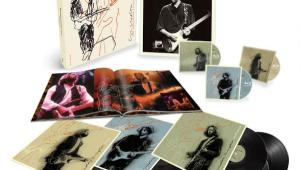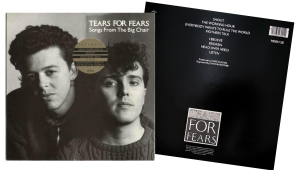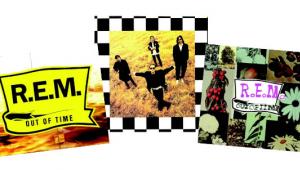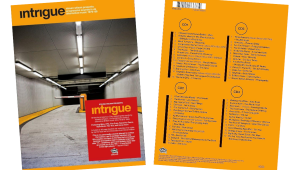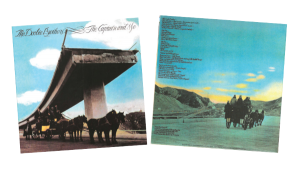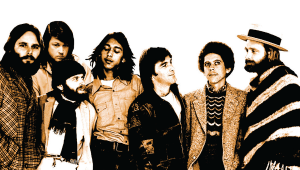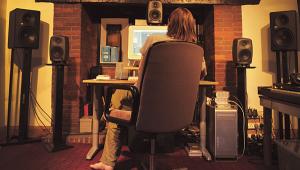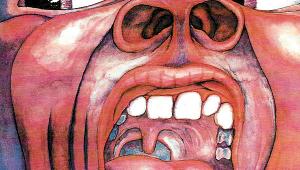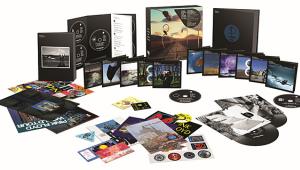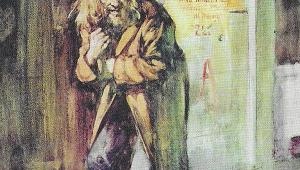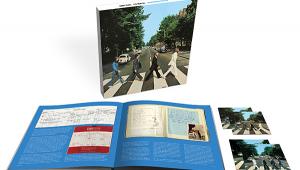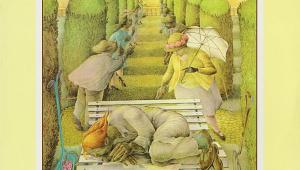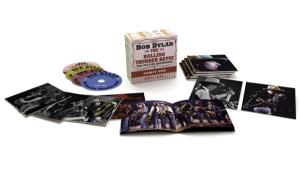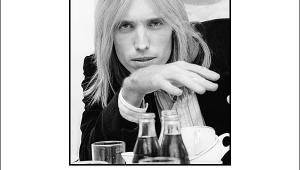The 20th Century’s Greatest Hits Page 4
BELA BARTOK b. Nagyszentmiklos, Hungary, 1881; d. New York City, 1945 First acclaimed as a Hungarian "nationalist" composer, Bartok fled the rising fascist influence in his native country and died in exile in America. He wrote no symphonies, but his aggressive rhythms and bold exploration of new forms and tonalities yielded works of international appeal. Concerto for Orchestra; Music for Strings, Percussion, and Celesta; Hungarian Sketches. Chicago Symphony, Reiner (RCA). Fritz Reiner's 1955 "Living Stereo" recording is still the one to own of the 1944 "concerto" for each section of the orchestra, which became Bartok's most popular piece and inspired numerous other works in the same form. The astonishingly colored Music for Strings, Percussion, and Celesta has been an even more influential modern classic, and Reiner's reading is again at the top of the list. The Wooden Prince; Music for Strings, Percussion, and Celesta. London Symphony, Dorati (Mercury). The endearing 1917 ballet based on a folk legend calls for a very large orchestra, and the LSO plays the hell out of it under Bartok's countryman Antal Dorati in this terrific "Living Presence" recording. Bluebeard's Castle. Ludwig, Berry; London Symphony, Kertesz (Decca). Like Beethoven, Bartok wrote only one opera, but it's an equally astonishing achievement. This 1965 recording has never been surpassed artistically nor sounded better than in its 24-bit remastering.
SERGEI PROKOFIEV b. Sontsovka, Ukraine, 1891; d. Moscow, 1953 Prokofiev left his homeland in 1918, living in the U.S. and France and acquiring a taste for jazz but not for a life of exile. He returned to Russia, where his uncanny flair for melodic invention, spiced with spiky rhythms and modern harmonies, was both nurtured and exploited by the Stalinist regime. Peter and the Wolf; "Classical" Symphony; Overture on Hebrew Themes. Chamber Orchestra of Europe, Abbado (DG). A wonderful "Classical" Symphony, and pop singer Sting's narration in Peter helps keep this 1936 modernist children's entertainment sounding, well, modern. Romeo and Juliet. Cleveland Orchestra, Maazel (Decca, two CDs). One of his most popular works is spectacularly played and recorded in its entirety instead of in the usual suites. Alexander Nevsky; Scythian Suite. Scottish National Orchestra, Järvi (Chandos). The score for Eisenstein's film Alexander Nevsky (1938) demonstrates Prokofiev's gift for Russian melody and is one of the best examples of "movie music" transcending its occasion. Piano Concerto No. 3 (see Ravel). Violin Concertos Nos. 1 and 2. Vengerov, violin; London Symphony, Rostropovich (Teldec, two single CDs packaged with Shostakovich's Violin Concertos). Vengerov is in the great line of Russian virtuosos, and Rostropovich has this music in his blood.
DMITRI SHOSTAKOVICH b. St. Petersburg, 1906; d. Moscow, 1975 In and out of favor with the Stalinist regime, Shostakovich is said to have told the history of Soviet Russia through his fifteen symphonies (1923-1971). Concertos, chamber music, operas, film, and ballet scores confirm his broad mastery of musical forms. Symphonies Nos. 5 and 9. Concertgebouw Orchestra, London Philharmonic, Haitink (Decca). With his "accessible" Fifth Symphony (1937), Shostakovich found favor again with the repressive regime, but the witty yet dark Ninth (1945) led Stalin's henchmen to invent the term "formalism" for the punishable offense of displeasing him. Symphony No. 10. Berlin Philharmonic, Karajan (DG). Not surprisingly, Shostakovich celebrated Stalin's death in 1953 with a symphony in which triumph is tempered by pessimism. The Film Album. Royal Concertgebouw, Chailly (Decca). This collection of film music chronicles both the composer's and Soviet Russia's love affair with the movies.
BENJAMIN BRITTEN b. Lowestoft, England, 1913; d. Aldeburgh, England, 1976 Until Britten came along, England hadn't had an international operatic hit in 250 years. Ten operas and several choral works later, despite criticism by conservatives for his socialism and pacifism during World War II and by modernists for his devotion to tonality, his place in 20th-century music was secure. Peter Grimes. Pears, others; Royal Opera House, Covent Garden Chorus and Orchestra, Britten (Decca, two CDs). This 1959 recording of his greatest opera has achieved legendary status and sounds wonderful as remastered for Decca's appropriately named "Legends" series. Four Sea Interludes; Passacaglia. Ulster Orchestra, Handley (Chandos). The orchestral interludes from Grimes have had a life of their own; they're coupled here with interesting works by Bax and Bridge. War Requiem. Vishnevskaya, Pears, Fischer-Dieskau; choruses; London Symphony, Britten (Decca, two CDs). The 1963 recording of his most monumental work sounds splendid in its 24-bit remastering.
SAMUEL BARBER b. West Chester, PA, 1910; d. New York City, 1981 Scorned as a conservative by his modernist contemporaries, Barber has recently gained increased recognition for the colorful harmonies and abundant melodies of his music, which is why audiences liked it in the first place. Adagio for Strings; Medea's Dance of Vengeance; Second Essay for Orchestra; other works. New York Philharmonic, Schippers (Sony). The Adagio is the work Barber is best known for, and many who saw Platoon know the music without knowing the composer. Violin Concerto. Hahn, violin; St. Paul Chamber Orchestra, Wolff (Sony). The young American violinist's focused yet warm tone is ideal for the tender lyricism of this 1939 concerto, and she has virtuosity to burn for its dazzling finale. It's coupled with Edgar Meyer's folksy Violin Concerto, which she premiered in 1999. Knoxville: Summer of 1915. Upshaw, soprano; Orchestra of St. Luke's, Zinman (Nonesuch). Barber's 1947 setting of James Agee's text beguilingly evokes small-town America, and Upshaw's fluid singing is luminous. The disc also offers arias by Menotti and Stravinsky and a song cycle by Harbison.
- Log in or register to post comments

